Automotive supplier Delphi has created a cost-effective technology that boosts gasoline-engine efficiency by a whopping 5 percent.
Engineers fight tooth and nail to cut fuel consumption by as little as half a percent, so this is big news even if it sounds insignificant at first blush. When paired with complementary technology, the gains are even more significant.
Dynamic Skip Fire
Called Dynamic Skip Fire (DSF), this relatively simple advancement takes cylinder deactivation to the next level. Comparable systems on the market today are binary, turning a set number of cylinders on or off as dictated by driving conditions, but DSF can disable any number of them at any time. This means a four-banger could operate at full strength or with just one, two or three pots on the boil. While coasting, all cylinders can be deactivated, which minimizes pumping losses since air is not flowing into and out of the engine, something that further enhances efficiency.
Enabling this are collapsible roller-followers, the components that take a camshaft’s rotational movement and transfer it to the intake and exhaust valves. Mounted in the cylinder head are hydraulic regulators that run off pressurized oil. They control when cylinders are active or not.
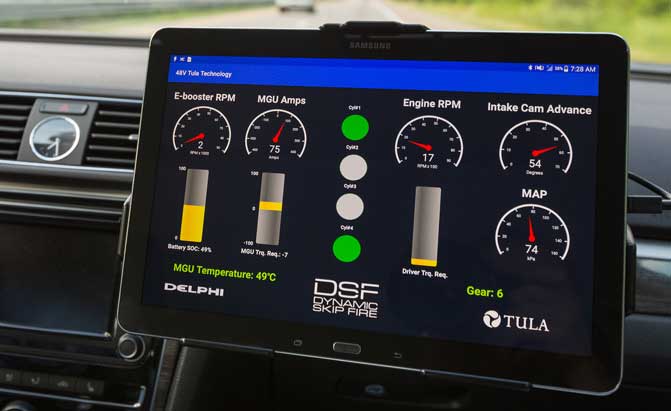
With DSF, these components operate much more frequently than in other cylinder-deactivation technologies, which typically only shut down combustion under the lightest of loads. Assuaging any durability concerns, Harry Husted, director of engineering for powertrain electrification and electronics at Delphi noted, “[They’re] made to be fast and made to be durable for a lot of events.”
But these physical components only get you so far; the true magic of this system is clever software that brings it all to life. “It’s completely computer controlled,” said Husted.
SEE ALSO: 6 Technologies That Could Change Driving Forever
Codeveloped with a firm called Tula Technology based in San Jose, Calif., DSF is driven by advanced algorithms that determine which cylinders are needed and when they fire.
Interestingly, the engineer that developed this system used to work on pacemakers. The similarities between a human heart and internal-combustion engines are undeniable.
Imperceptible Performance
Demonstrated on a modified Volkswagen Passat sedan equipped with a 1.8-liter turbocharged engine and a six-speed automatic transmission, a car that also happened to be outfitted with a 48-volt electrical system, this technology proved to be completely transparent, cylinder deactivation was imperceptible at all speeds and loads, which is the software’s primary objective. By rapidly alternating which cylinders fire, uncouth vibration and noise are mitigated, with results that are nothing short of astonishing.
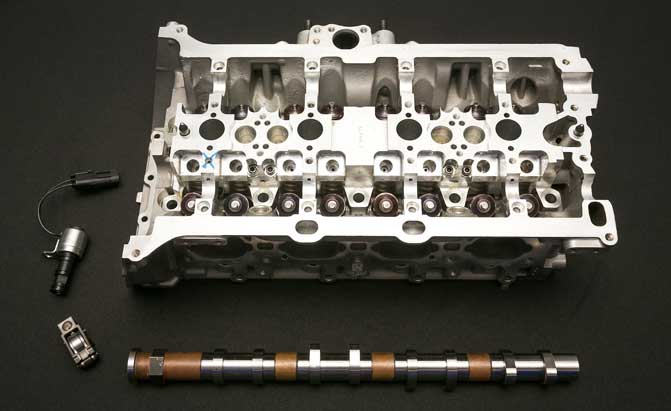
In traditional cylinder deactivation where, say, a V8 engine shuts off half its holes, you always feel a little something, the exhaust note changes slightly or there’s a touch more vibration, but this is not at all the case with DSF.
Cruising along in Delphi’s modified Passat, the engine would run on four cylinders, as indicated by a series of green lights displayed on a tablet computer mounted on the dashboard, then it would drop two before firing just one, finally cutting all cylinders and sailing along effortlessly. With the valves deactivated, each cylinder compressed air, which acted as a spring, returning much of the energy spent squeezing it, helping the car glide along.
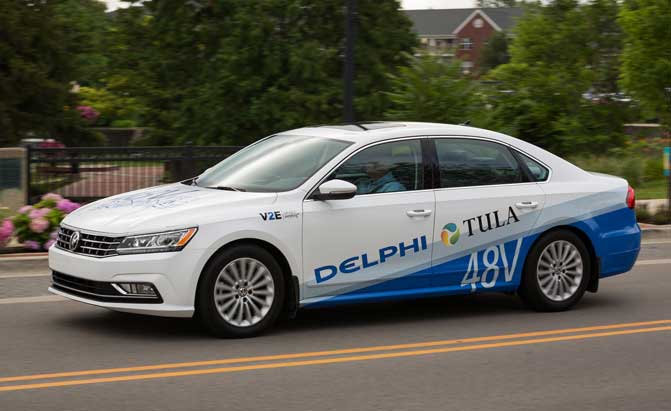
Unexpectedly, one area where this system is not used is at idle. Deactivating cylinders at low engine speeds results in untenable noise and vibration, so Delphi’s demonstration car ran on all four cylinders when the tachometer needle was low in the rev range. The inclusion of stop-start would further reduce fuel consumption in these situations.
More than the Sum of its Parts
And this is something that can easily be added with the inclusion of a 48-volt electrical system, which improves efficiency anywhere between 10 and 15 percent on its own. This technology enables things like electric oil, water and air-conditioning pumps, mild-hybrid functionality, efficient active suspension systems and e-boosting, highly beneficial additions to any vehicle.
In testing, Delphi is seeing a 19-percent efficiency improvement in city driving with its test Passat brandishing both DFS and 48-volt electronics, and this is without optimization. Work is still being done to fine tune how these systems work together.
SEE ALSO: Electrical System Four Times More Powerful Coming Soon
The reason that figure is greater than what’s provided by its constituent parts is because these technologies are complementary, 48-volt electrics work best in urban driving situations while DSF provides the highest gains while cruising.
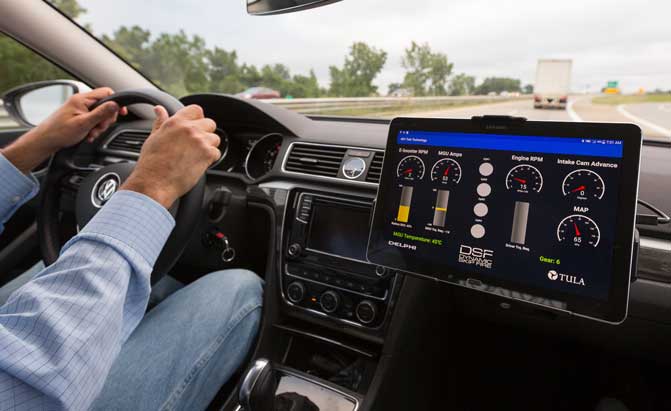
Compared to modern clean diesel powerplants, a turbocharged, direct-injection gasoline equipped with DSF and 48-volt electronics is 25 percent cheaper with comparable torque output and CO2 emissions, costing automakers around $1,500 extra, compared to $2,000 for a diesel with all the requisite after-treatment systems. Providing further benefit to customers, gasoline engines are generally quieter and smoother than their compression-ignition counterparts, plus there’s no urea tank to fill, a necessity for diesels to meet today’s emission standards.
Available Soon, Priced to Sell
On its own, DSF is expected to cost OEMs only about $350 when added to a four-cylinder engine, though it operates best when paired with a 48-volt electrical system.
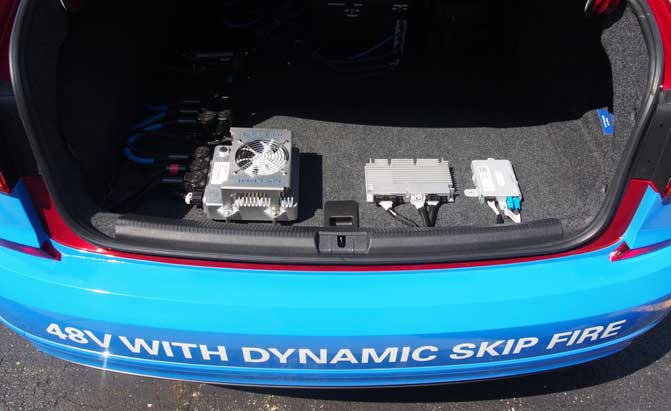
Delphi’s Dynamic Skip Fire cylinder-deactivation technology is ready for primetime right now. Automakers are currently working to add the system to their engines, with an expected on-sale date in 2020, which is just a few years away.


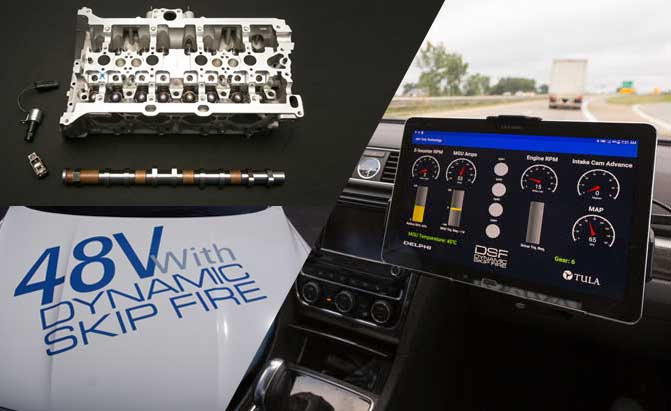
Leave a Reply